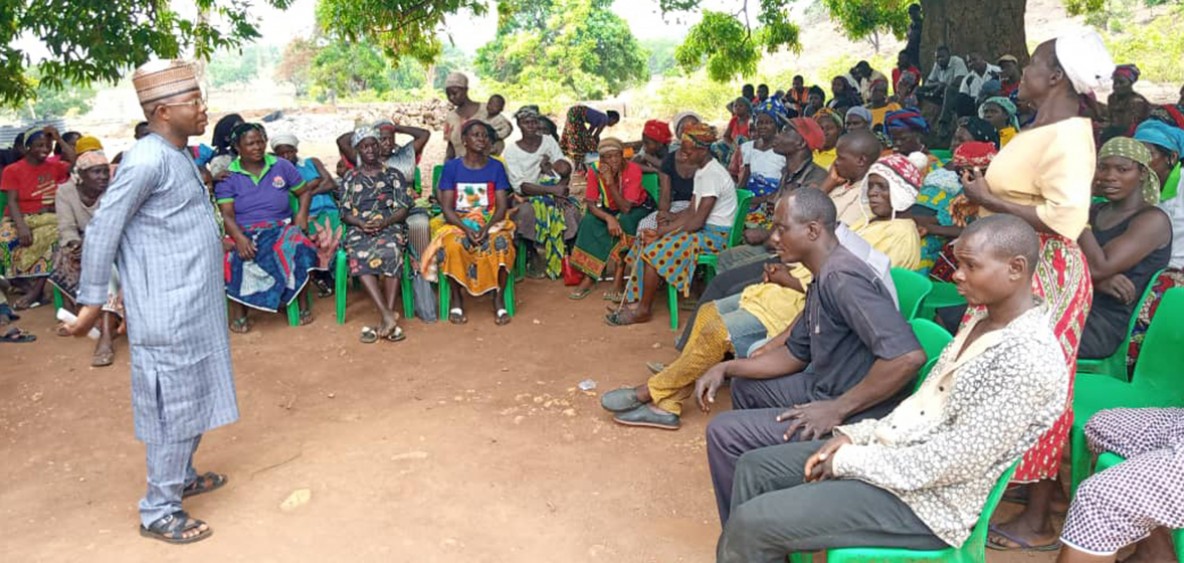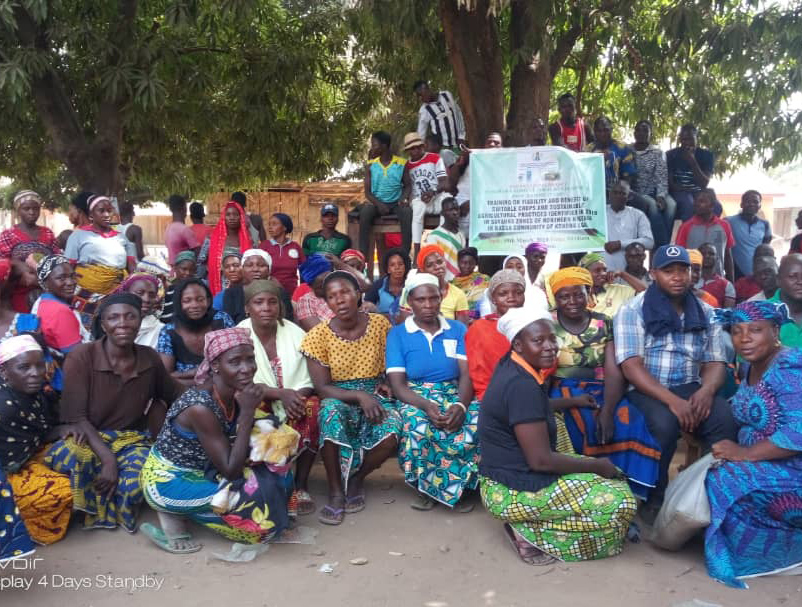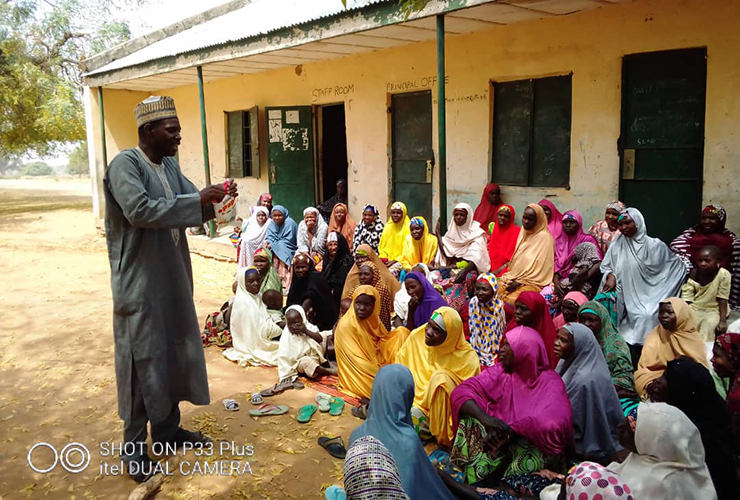
At the beginning of 2020, the RFS Nigeria project trained over 7,000 smallholder farmers across 70 communities in the identification of suitable crops and climate-smart agricultural practices.
Implemented by the United Nations Development Programme (UNDP), in partnership with the Ministry of Agriculture and Rural Development, the RFS Nigeria project ‘Integrated Landscape Management to Enhance Food Security and Ecosystem Resilience in Nigeria’ seeks to build resilient food systems in the northern part of the country. The project works with 70 communities across three agro-ecological zones to integrate sustainability and resilience-building into land use systems and natural resource management.
In order to scale up Sustainable Land and Water Management (SLWM) practices, the RFS Nigeria project team has placed a central focus on capacity development of both farmers and agricultural extension officers.
In 2019, the RFS Nigeria project conducted a study to identify suitable crops and sustainable agricultural practices in all 70 project communities. The findings of the study were piloted in several demonstration plots that were showcased during Farmer Field Days in the second half of 2019.
After demonstrating the viability of the new crops and production practices to local farmers, from February to April 2020, the RFS Nigeria project conducted community-level training to teach farmers about the new crops, techniques, and technologies used in the demonstration plots. Across the 70 project communities, over 7,000 smallholder farmers, of which 56% were women, were trained in sustainable land and water management (SLWM) and climate-smart agricultural (CSA) practices.

Training sessions included the introduction of high-yield varieties of improved seeds for each suitable crop identified in the 2019 study report, with an emphasis on the characteristics of each variety (e.g. short maturity period, drought resistant, etc.). In addition, the training covered aspects of affordability, how to acquire the seeds, and appropriate methods for growing the seed—from planting to harvest. The farmers were also trained in identifying sustainable agricultural practices given the unique environmental factors within each community. Farmers were trained to assess the topography, soil health, and vegetation conditions of their land in order to select the most appropriate sustainable land and water management practices.
Our yields are almost always low with little profits even from our processing and marketing of farm produce. The opportunities to improve seems very difficult, but with the introduction of these improved seeds and good practices from the [Resilient Food Systems] project the future looks promising.
- Jamila Sale
Nassarawa, Nigeria

At the end of the training sessions, participants were taken to a demonstration plot to see the potential of these new practices on-the-ground. Farmers were able to witness first-hand the potential of each new crop introduced to the area, the benefits of agricultural diversification, and the potential of integrated sustainable approaches and practices.
An immediate and notable outcome of the training was the introduction of soybeans to the Dason Bwatiye community in Adamawa State, a crop that had previously never been grown by smallholders in that region. Kauna Joram, a smallholder farmer in Dason Bwatiye remarked that most farmers in the area “were not aware of the existence of soybeans until the [Resilient Food Systems] project”. Since being introduced to the crop and learning about the appropriate methods for growing the seed, Kauna Joram was confident that farmers in his area would begin integrating soybean into their production: “Since the soybeans have been introduced to us, we have requested demonstration plots for soybeans in our communities this farming season to create more awareness”.
By selecting more suitable crops, improving crop diversification and scaling-up more sustainable farming practices within each community, the RFS Nigeria project hopes to help smallholder farmers, like Kauna Joram, build livelihoods that are more resilient to the impacts of climate change and climate shocks and improve food security within their communities.
Subscribe to our monthly newsletter to receive updates on stories directly from the field across all our projects, upcoming events, new resources, and more.